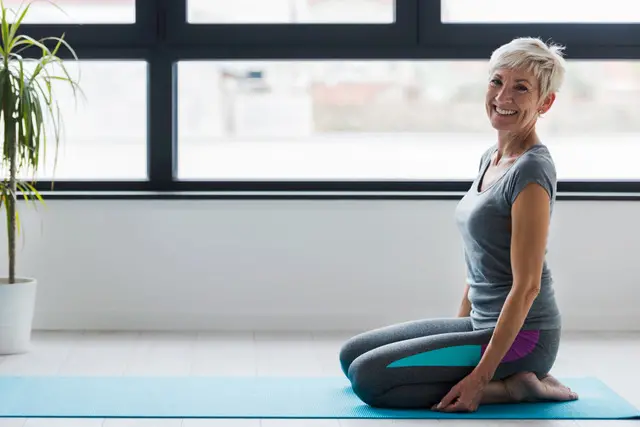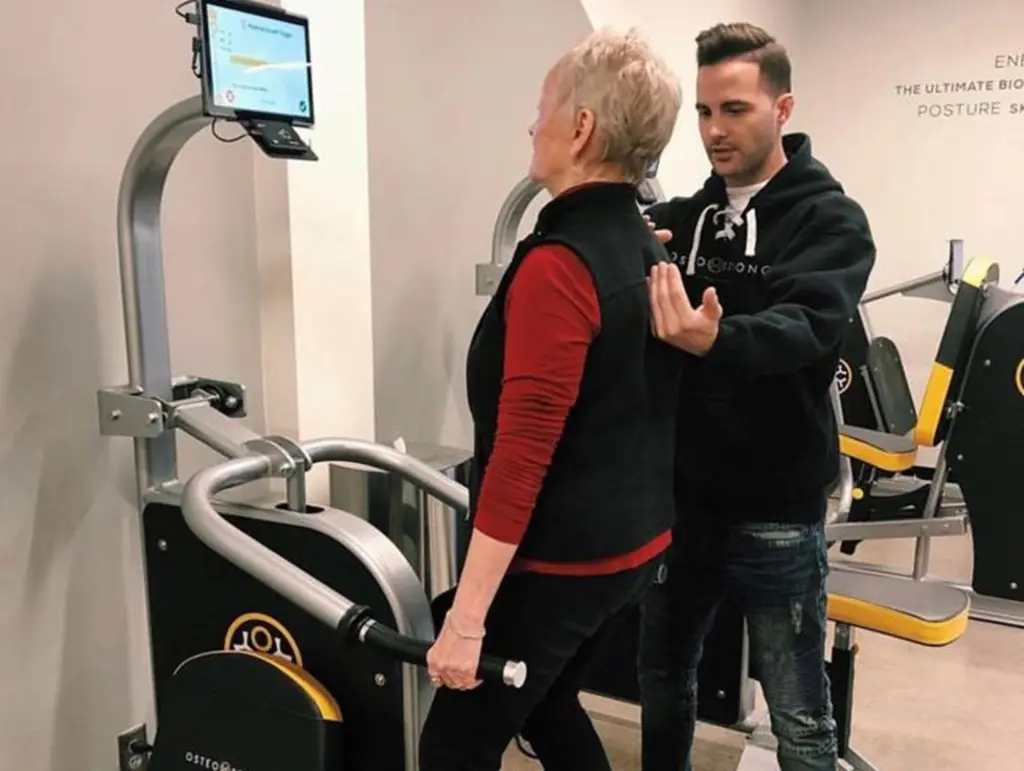By Bethany KandelBethany Kandel is a New York City-based journalist who often writes about health issues including breast cancer. She is a 13-year breast cancer survivor. Get up and move. We all know it’s good for both your mental and physical health. In fact, studies show that even moderate exercise not only reduces the risk of developing cancer and other chronic illnesses including heart disease and diabetes, but it can also help you survive longer afterwards if you do.
Exercise is also very important for bone health, especially post-cancer when you may be on estrogen-suppressing drugs that can have a negative impact on your bones.
If you’ve made it through diagnosis and treatment, you’ll probably want to do anything you can to ensure your cancer doesn’t return. Many patients make lifestyle changes to maximize their long-term health, improving eating habits, cutting sugar and ramping up their exercise routines.
 It’s always a good time to get fit, but ease in slowly post treatment, and always check with your doctor first.
It’s always a good time to get fit, but ease in slowly post treatment, and always check with your doctor first.
After my own cancer surgery, I was very tentative about moving, afraid of busting stitches and worrying I’d have a limited range of movement in my upper body. I started with a gentle post-cancer movement class to ease back in. Before long, my scars were healing, my arms were swinging and I was moving just as before.
When you are ready to exercise after surgery, look for a certified trainer who has experience working with cancer patients and knows how to build bone health and avoid lymphedema (the swelling and fluid retention that is common among women recovering from breast cancer).
Keep these things in mind:Get moving slowly and build up your strength.
Implement a program of about 30 minutes at least three times per week. Add in moderate weight lifting about twice a week, if possible.
*The NIH recommends both aerobic and resistance exercise for preventing loss of bone density.It may take time to get back to your usual routine (if you had one) so cut yourself some slack. If you can’t find 30 continuous minutes, get your exercise in smaller increments of 10 and 15-minute segments. Sneak activity into your day. Stretch during commercials when binge-watching TV. Walk around the house when you’re on the phone. Use stairs instead of elevators.
Remember to incorporate both aerobic or cardio along with some resistance and weight training. The American Cancer Society recommends a program that involves strength training for the major muscle groups 2-3 times a week.Keep track of your increased level of activity with a pedometer, app or smart watch. As you add steps, you’ll be motivated to do more. But don’t feel bad if you need to take a break for treatment or fatigue; just get going again when you’re able.Eating well goes hand-in-hand with an exercise program. Introducing a healthy diet is another way to increase bone health and keep off unwanted pounds that may be a side effect of some medications. Add calcium-rich foods including kale, tofu, yogurt and chia seeds. Eliminating alcohol has also been recommended for cancer patients.Exercise can make a profound difference in attitude when living with cancer, lessening feelings of fear, anxiety and depression. Getting fit and building up your bones is one way you can regain control of a situation where you often feel totally out of control. It will give you more energy and a positive outlook on life as you move on to your new normal.
Note: Always check with your doctor before beginning an exercise program post-surgery and/or treatment.Here are ways to connect to those with shared experiences:
- The American cancer Society can help you find local support programs and services. https://www.cancer.org/treatment/support-programs-and-services.html
- Breastcancer.org has dozens of active message boards.
- Imerman Angels will match you with a “mentor angel” who has had a similar diagnosis and treatment, for one-on-one support. https://imermanangels.org/
- The Breasties has a vibrant nationwide online and in-person community of young women with breast cancer or with the BRCA gene. https://thebreasties.org/
Bethany Kandel is a New York City-based journalist who often writes about health issues including breast cancer. She is a 13-year breast cancer survivor. She is the founder of www.BreastCancerFreebies.com, a website that helps breast cancer patients and survivors find free wigs, hats, make-overs, magazines, retreats, financial aid, supportive services and much more.
Find her on Instagram @awaywithbethany
